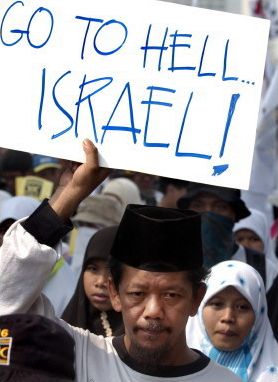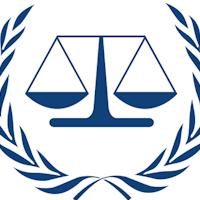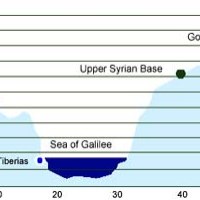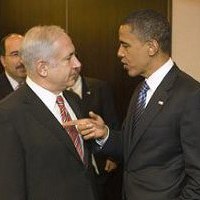![]()
RubinReports | By Barry Rubin
A different version of this article is published in the Jerusalem Post.
“It is a tale told by an idiot, full of sound and fury, signifying nothing.” –William Shakespeare, “Macbeth”
Whatever side you are, or aren’t, on and whether you never think about these issues or are an impassioned activist, there are three fundamental issues about Israel, its enemies, and the Middle East that tie the narrative into knots.
Each of these wrong ideas, of course, has a basis in fact. Yet no matter how counterintuitive you find the following points questioning that conventional wisdom they are nonetheless accurate. You can’t understand events without grasping them.
1. Israel’s existence is jeopardized.
There is no question that Israel’s existence is challenged or threatened by various forces but what’s essential is that these forces cannot succeed. Every day, after 65 years of failure they are further from that goal. Israel becomes stronger on all levels. The economic and strategic gaps are getting wider, not narrower, for reasons much related to points two and three, below.
What is important is the country’s internal social and strategic strength, not what’s written about it in the Western media or said on Western campuses, for example.. Arab armies have repeatedly been defeated; terrorists repeatedly blocked; Israel has grown stronger and time is, indeed, on its side.
This should not lead to complacency — a mistake most clearly seen in the 1973 war and to some extent in the 2006 one — but to calm confidence. This does exist in Israel but not so much in sectors of the Diaspora Jewish communities, which themselves face higher threats to their existence either physically or due to assimilation, the attraction of leftist political ideology, and loss of direction.
Despite the sound and fury, much of the criticism and threats remain toothless. For instance, while the UN, European countries, and the European Union have wasted a lot of their time spouting nonsense about Israel it has amounted to little in material terms. The same is true of others.
Another key concept is that the extent of anti-Israel obsession in the public sphere is misleading. Dozens of countries, causes, and groups are vilified all the time, yet of them all none compares to Israel and its supporters in their ability to respond. It is the strength of the resistance that often increases the apparent volume of controversy.
Finally, the use of the Israel issue to fuel hysteria by dictatorships, radical Arab nationalists, and Islamists actually undermines the Arabic-speaking world, making it weaker and thus, ironically, less able to combat Israel.
Iran’s drive for deliverable nuclear weapons — which it doesn’t yet have — is worthy of discussion but this threat is quite manageable by Israel, both through offensive and defensive measures as well as given the fact that Iran’s eagerness to nuke Israel and commit suicide has been greatly exaggerated. .
2. The concerted international campaign by various groups in the West against Israel damages it and helps the Palestinians.
Again, this should be obviously true but it is quite the opposite. To date, despite all the noise, Israeli interests — including businesses — have suffered little damage. On the contrary, the attacks encourage support, including increased buying of Israeli products and energetic loyalty by Israel’s supporters abroad.
But all of these endless demonstrations, teach-ins, books, articles, documentaries, boycott, disinvestment, and sanction labors do absolutely zero to help the Palestinians. On one level, they do nothing politically to advance their cause in a real sense. On another level, they contribute nothing to their welfare.
Moreover, by convincing the Palestinian leadership that they can eliminate Israel completely, that Western support is swinging toward them, and that they don’t need to change their own policies or strategies, all of this behavior leads them charging down a dead-end street. The end result is the battering of their heads against a stone wall.
Imagine — as the activists in these movements have never done once! — that all of this energy went into buying Palestinian products, donating to improve Palestinian schools and hospitals, resettling refugees and providing them with productive jobs and housing. That would be truly pro-Palestinian. And even if the intention was to use this progress as a base for destroying Israel some day it would be more effective than what they are doing now.
And so all of this energy is wasted effort and this hatred produces no result.
Of course, since most of the Palestinian leadership in the West Bank and Gaza Strip has been engaged in stealing aid money and funneling it into their private bank accounts, admittedly these activists don’t have a very good role model to follow. And since the leadership’s goal is to keep its people poor and living in refugee camps in order to use them as revolutionary fodder and an object of sympathy these activists don’t have much incentive to do real good.
3. Israel is the main cause of instability in the Middle East.
On one level, of course, the Arab-Israeli conflict has been a basis for instability that has often been exaggerated. People ignorant of all the other issues in the region have only heard of that one controversy. Beyond that, though, consider what would be different if Israel didn’t exist.
Implicitly, this is thought by most Arabs and Muslims to be the basis for a united utopian society stretching from Morocco through Afghanistan. But that’s precisely the point. What kind of society would that be? Who — what leader, country, and ideology, would lead it? Who gets to be the caliph?
In other words, if Israel didn’t exist than the level of internal conflict and bloodshed would be even higher. There would be nothing — including the territorial separation that Israel provides — to stop these leaders, movements, countries, and ideologies from being at each other’s throats. Tremendous wars between countries would spill oceans of blood. Decades’-long Sunni-Shia conflicts would enflame the lands. Endless internal strife would bring civil wars that would dwarf what we’ve seen in Lebanon, Syria, and Iraq.
Even with Israel, instability of this kind is bad enough, though it is far less noticed than it would be otherwise. The same applies, by the way, to the Arab-Israeli conflict whose end — which will not come anytime soon — would have the same effect.
One final point: because much of the thought and political action on the Middle East is in the wrong direction, running against the realities, the main effect is to confuse those watching and engaging in them. Yet, disregarding all of this noise, what actually exists marches forward. Or to use an Arab proverb, the dogs bark; the caravan moves on.
Barry Rubin is director of the Global Research in International Affairs (GLORIA) Center and editor of the Middle East Review of International Affairs (MERIA) Journal. His book, “Israel: An Introduction“, has just been published by Yale University Press. Other recent books include “The Israel-Arab Reader” (seventh edition), “The Long War for Freedom: The Arab Struggle for Democracy in the Middle East” (Wiley), and “The Truth About Syria” (Palgrave-Macmillan). The website of the GLORIA Center and of his blog, Rubin Reports. His original articles are published at PJMedia.



 RSS
RSS











Latest Comments
Hello Mike, Thank you for your positive feedback to the article. I felt there wasn’t too much critical analysis of ...
Thanks for this considered and well constructed article. A follow up article on the manner in which the editorial contro...
THE CLUELESSNESS OF CLAIMING THAT OBAMA'S MIDDLE EAST POLICIES WERE A FAILURE CANNOT BE FURTHER FROM THE TRUTH, WHAT THE...
As long as Obama is the president of the usa do not trust the us government......
Thank you for an good read....